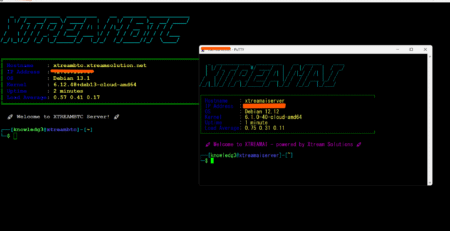How to Fix n8n Schedule Triggers Not Running After Docker Restart
n8n is a powerful open-source workflow automation tool, perfect for teams looking to self-host and integrate AI-powered workflows. But if you’re running n8n inside Docker and notice that your scheduled workflows stop executing after a restart, you’re not alone.
In this guide, we’ll walk you through exactly why this happens and how to fix it — permanently.
🧠 The Problem: Schedule Triggers Don’t Auto-Run After Docker Restart
You’ve set up a workflow in n8n with a Schedule Trigger. It runs perfectly when manually executed. You’ve even marked it Active.
But after restarting your Docker container:
- The workflow still shows “Active”
- Yet scheduled runs never fire
- And you’re forced to hit Execute Workflow manually
🔍 Why?
Your workflow state and schedule trigger configuration are stored inside a file called database.sqlite. If this file isn’t saved persistently across container restarts, your triggers won’t be registered on reboot — even if the UI suggests they are.
✅ The Fix: Use Proper Volume Mounting + File Permissions
To make n8n schedule triggers survive a Docker restart, you must:
- Persist the n8n database using a Docker volume
- Ensure the internal
nodeuser has permission to write to that volume
🔧 Step-by-Step Instructions
✅ Step 1: Locate Your Docker Setup
Make sure you’re in the folder where your docker-compose.yml lives:
bashCopyEditcd ~/docker/n8n
If you’re using a bind mount like this:
yamlCopyEditvolumes:
- ./n8n-data:/home/node/.n8n
Make sure the folder exists:
bashCopyEditls ./n8n-data
✅ Step 2: Fix Permissions for the n8n-data Folder
n8n runs as the node user inside the container (UID 1000). Your folder might be owned by root or another user like debian, causing silent write failures.
Run this to fix it:
bashCopyEditsudo chown -R 1000:1000 ./n8n-data
Optionally tighten up permissions:
bashCopyEditsudo chmod -R 755 ./n8n-data
✅ Step 3: Restart Docker Compose
This will shut down and relaunch n8n with proper access:
bashCopyEditdocker-compose down
docker-compose up -d
✅ Step 4: Test It
- Open the n8n editor:
https://your-n8n-domain.com - Create a workflow with a Schedule Trigger (e.g., every 1 minute)
- Add a Set Node that sets
{"status":"working"} - Activate and save the workflow
- Wait 1–2 minutes — it should execute
- Now restart n8n:
bashCopyEditdocker-compose restart n8n
- Wait again. The schedule should still fire. ✅
💡 Pro Tip: Use Named Volumes Instead
For better stability across environments, consider switching from a host bind mount to a Docker-managed named volume:
Replace:
yamlCopyEdit- ./n8n-data:/home/node/.n8n
With:
yamlCopyEdit- n8n_data:/home/node/.n8n
Then add this to the bottom of your docker-compose.yml:
yamlCopyEditvolumes:
n8n_data:
This avoids file permission issues entirely.
🛡️ Bonus: Export Workflows for Backup
Before making any big changes, always back up:
bashCopyEditdocker exec -it n8n n8n export:workflow --backup
This will export all workflows into the container’s .n8n/backup folder.
🧬 Wrapping Up
When n8n schedule triggers don’t run after reboot, it’s usually a persistence or permission issue. With the steps above, you’ll be able to:
- Fix schedule trigger failures
- Make your workflows reliable after reboot
- Avoid silent data loss caused by permission mismatches
For advanced automation, AI-powered lead gen, and n8n integration consulting — Xtream Solutions is here to help. 💡
📩 Need Help?
If you’d like us to audit your automation stack or set up AI-enhanced workflows for your law firm, business, or agency, contact us today.



Leave a Reply